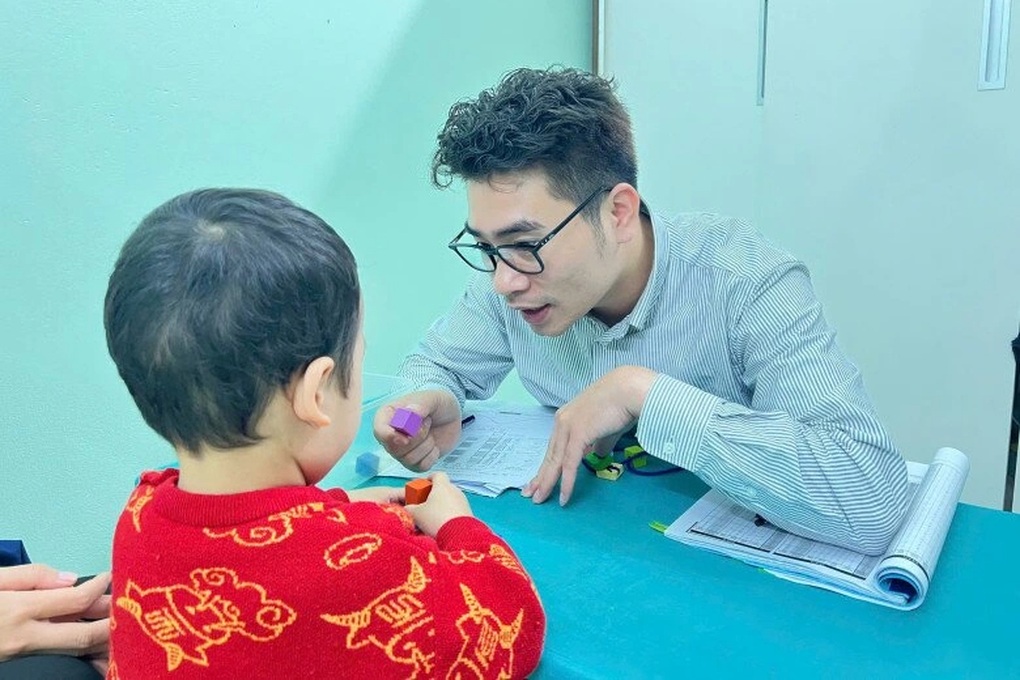At the age of 13, Quang (name changed), living in Hanoi , was taken by his parents to a psychological clinic because he was withdrawn, rarely socialized, frequently suffered from insomnia, and showed signs of dropping out of school.
The story, shared by Master of Science Hoang Quoc Lan, a clinical psychologist who directly examined the child patient, reveals a silent truth that exists in society: Even without experiencing violence or material deprivation, the child still falls into mild depression because of... loneliness within their own family.
An "empty" childhood amidst abundance
Quang told the expert that his childhood was filled with times he went to his neighbors' houses to eat meals because his own family was often empty.
On weekends, my parents would only leave a small amount of money and tell me, "Buy whatever you want to eat." The family almost never ate meals together; everyone had their own schedule, and even when everyone was present, the sounds of the television and chopsticks drowned out any conversation.

Quang's family meals lacked warmth (Photo: Getty).
The rare question from his father, "How's your studies lately?", only received a curt reply from Quang: "Normal."
The boy tried to share his sadness, but his mother said, "What's there to be sad about?", and his father dismissed it, saying, "You're grown up now, take care of yourself." Such experiences made him reluctant to speak up again.
According to Ms. Lan, Quang is a typical case of Childhood Emotional Neglect (CEN).
This is a state that occurs when children do not receive appropriate emotional support from their parents, even when living in materially comfortable conditions. Children gradually come to believe that their feelings are unimportant, thus developing a habit of withdrawing and silently enduring everything.
"Emotional poverty" - a disease of modern times.
In modern society, many children grow up in "ideal living conditions" but face another form of poverty: a lack of emotional connection. Busy parents, preoccupied with material success, often unintentionally neglect their children's spiritual lives.

MSc. Hoang Quoc Lan, clinical psychology expert (Photo: Provided by the expert).
They give their children freedom, without interfering, thinking it's a civilized way to express love. But it is this lack of emotional support that makes children feel lost. When their feelings aren't listened to or acknowledged, children easily fall into prolonged states of loneliness, anxiety, and sadness.
Many children seek connection through social media and electronic devices – places rife with negative information. Constantly witnessing images of other people's "happy families" sometimes only intensifies feelings of inferiority and self-doubt.
What should parents do?
It's not physical presence, but emotional presence that children need most.
According to Ms. Lan, it's crucial for parents to create a safe space where children can share their feelings, even the smallest joys and sorrows. Start with specific questions like, "What made you happy at school today?", instead of just asking, "How was school?".
Let children see that their feelings are valued, rather than dismissed as "trivial." Don't rush to judge or impose solutions when your child needs to be listened to.
True companionship doesn't come from expensive trips , but from small things: a meal on time, watching a favorite show together, or a hug when your child is tired.
"A thoughtless word can leave a scar, but a timely word of comfort can be a bridge to pull a child out of the darkness," the expert emphasized.
Source: https://dantri.com.vn/suc-khoe/cau-be-tram-cam-vi-nhung-bua-com-nguoi-lanh-cam-xuc-20250512074918769.htm




![[Photo] Prime Minister Pham Minh Chinh receives the Governor of Tochigi Province (Japan)](/_next/image?url=https%3A%2F%2Fvphoto.vietnam.vn%2Fthumb%2F1200x675%2Fvietnam%2Fresource%2FIMAGE%2F2025%2F12%2F16%2F1765892133176_dsc-8082-6425-jpg.webp&w=3840&q=75)
![[Live] 2025 Community Action Awards Gala](/_next/image?url=https%3A%2F%2Fvphoto.vietnam.vn%2Fthumb%2F1200x675%2Fvietnam%2Fresource%2FIMAGE%2F2025%2F12%2F16%2F1765899631650_ndo_tr_z7334013144784-9f9fe10a6d63584c85aff40f2957c250-jpg.webp&w=3840&q=75)
![[Image] The tenacious fighting spirit of Vietnamese women's football](/_next/image?url=https%3A%2F%2Fvphoto.vietnam.vn%2Fthumb%2F1200x675%2Fvietnam%2Fresource%2FIMAGE%2F2025%2F12%2F17%2F1765990260956_ndo_br_4224760955870434771-copy-jpg.webp&w=3840&q=75)

























































































Comment (0)